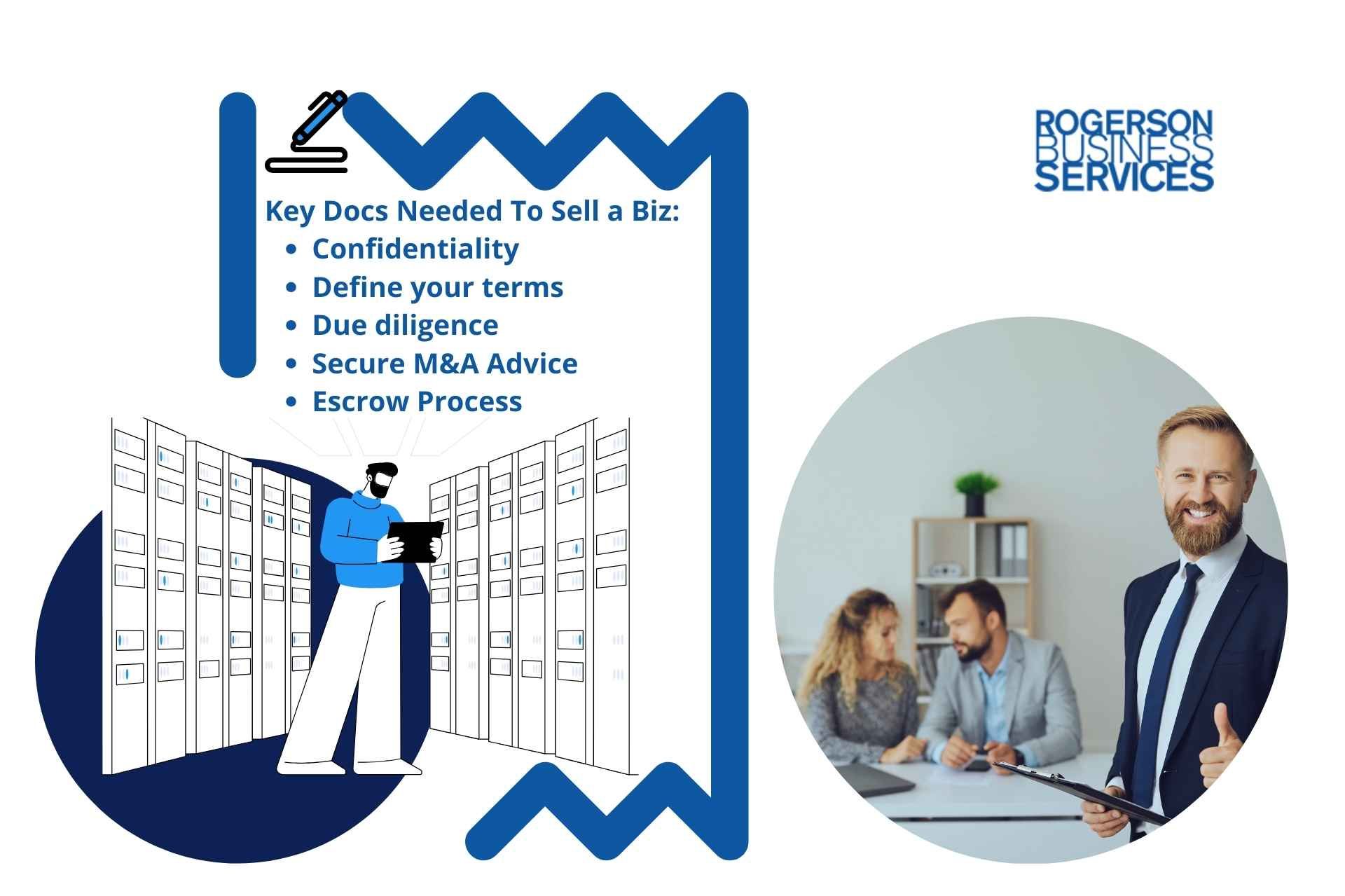List My Business For Sale in California: Your Roadmap to a Successful Exit
List My Business For Sale
Maximize your business sale price in California. Learn expert strategies for preparing your company, attracting qualified buyers, and negotiating the best deal.
This guide is your roadmap to successfully listing your business for sale in California. We'll cover everything from preparing your business for sale to finding the right buyer and closing the deal. I'll share insider tips, real-world examples, and valuable resources to help you achieve a smooth and profitable exit.
Key Takeaways:
- Your Roadmap to Success: Navigate the California business sale process confidently using this comprehensive guide to listing and selling your company.
- Maximizing Your Exit: Learn proven strategies to prepare your business, attract the right buyers, and achieve a smooth and profitable sale.
- California-Specific Insights: Gain valuable knowledge about the unique challenges and opportunities of selling a business in the Golden State.
- Expert Guidance: Benefit from the expertise of a seasoned M&A advisor who has helped countless California businesses achieve successful exits.
- Actionable Steps: Get a clear, step-by-step plan to list your business for sale, negotiate effectively, and close the deal confidently.


Hey there, California entrepreneurs! Andrew Rogerson here, your trusted guide in the world of mergers and acquisitions (M&A). Selling your business is a major milestone, and navigating the California market can be exciting and challenging. But don't worry, I'm here to help you every step of the way.
1. Preparing Your Business for Sale
Before you hit the market, it's crucial to get your business in top shape. Think of it like staging a house before selling it – you want to present it in the best possible light to attract potential buyers. Here's what you need to do:
- Financial Fitness: Get your financial house in order. Ensure your records are accurate, up-to-date, and well-organized. Consider getting a professional business valuation to understand your company's worth. (For more on valuation, check out How Much Can I Sell My Business For?)
- Operational Excellence: Streamline your operations, document your processes, and ensure your business can run smoothly without your constant involvement.
- Customer-Centricity: Nurture your customer relationships and build a loyal following. A strong customer base is a valuable asset that can increase your business's appeal.
- Growth Potential: Highlight your business's growth trajectory and future potential. Investors and buyers are always looking for companies with a bright future.
2. Finding the Right Buyer: Your Strategic Search
Imagine you're the owner of a successful medical device company in San Diego, developing cutting-edge surgical instruments. You've decided it's time to sell, but you don't want just any buyer.
You want someone who understands the intricacies of the medical device industry, appreciates the value of your intellectual property, and can continue to grow the business while maintaining its commitment to innovation.
How an M&A Advisor Can Help
This is where an experienced M&A advisor can be invaluable. They act as your strategic partner, guiding you through the process of finding the perfect match for your business. Here's how they can help:
- Confidentiality: Selling a business is a sensitive process. An M&A advisor can maintain confidentiality while discreetly marketing your company to potential buyers.
- Targeted Marketing: They'll craft a compelling marketing strategy to reach the right audience, whether it's strategic buyers in your industry, private equity firms, or individual investors.
- Buyer Qualification: They'll thoroughly vet potential buyers to ensure they have the financial capacity, strategic fit, and genuine interest to acquire your business.
- Negotiation Expertise: An M&A advisor will skillfully negotiate on your behalf, ensuring you get the best possible deal while protecting your interests.
Example:
Let's say you own a thriving trucking and transportation company in Los Angeles that you're looking to exit its ownership and retire. An M&A advisor with expertise in the logistics sector can connect you with potential buyers like:
- Larger logistics companies: Seeking to expand their fleet and market share in California.
- Private equity firms: Looking to invest in profitable transportation businesses with growth potential.
- Strategic acquirers: Such as e-commerce companies or retailers looking to vertically integrate their supply chain.
Pros and Cons of Using an Experienced Business Intermediary
| Benefit | Using an Intermediary (M&A Advisor or Broker) | Selling on Your Own |
|---|---|---|
| Confidentiality | Higher level of confidentiality maintained | Risk of sensitive information leaking to competitors or employees |
| Marketing Reach | Access to a wider network of potential buyers | Limited reach, may require more effort to find qualified buyers |
| Negotiation Expertise | Skilled negotiators who can secure the best possible deal | May lack negotiation experience, potentially leaving money on the table |
| Time Commitment | Frees up your time to focus on running your business | Requires significant time and effort to manage the sale process |
| Emotional Detachment | Provides an objective perspective and reduces emotional involvement | Can be emotionally challenging to negotiate and sell your own business |
| Cost | Involves fees or commissions | Potentially lower costs, but may require more personal investment |
3. Negotiating the Deal
Negotiating a business sale is a delicate dance. Here are some tips to keep in mind:
- Know Your Worth: Having a professional business valuation will give you a strong foundation for negotiations.
- Be Prepared to Walk Away: Don't be afraid to walk away from a deal that doesn't meet your expectations.
- Seek Legal Counsel: It's crucial to have an experienced attorney review any sale agreement before you sign on the dotted line.
4. Closing the Deal
The closing process can be complex and time-consuming. Here's what you can expect:
- Due Diligence: The buyer will conduct thorough due diligence to verify the information you've provided about your business.
- Legal Documentation: There will be a lot of paperwork involved, including the purchase agreement, asset transfer documents, and more.
- Transition Planning: Work with the buyer to ensure a smooth transition of ownership and operations.
The Bottom Line: Your Roadmap to Success
Selling your business in California is a significant undertaking. By following this roadmap, seeking expert advice, and being prepared for the journey ahead, you can achieve a successful and rewarding exit.
Ready to Take the Next Step?
If you're looking for more guidance on valuing your business or navigating the sale process, check out these helpful resources:
- How Much Can I Sell My Business For?
- How Can I Sell My Business Fast?
- Is now a Good Time to Sell a Business?
Remember, I'm here to help! If you
have any questions or need personalized guidance, don't hesitate to
fill the below form. Let's work together to make your California business exit a resounding success.
Have Questions? We've Got Answers
We will get back to you as soon as possible.
Please try again later.
Hey there! Can we send you a gift?
We just wanted to say hi and thanks for stopping by our little corner of the web. :) we'd love to offer you a cup of coffee/tea, but, alas, this is the Internet.
However, we think you'll love our email newsletter about building value and properly position your company before transition/exit your business ownership.
As a special welcome gift for subscribing, you'll also get our helping and educational guides, tips, tutorials, etc.. for free.
It's filled with the best practices for retiring serial business owners like Dan Gilbert, Larry Ellison, Warren Buffett, and many more.
Just sign up for our emails below.
Sign up to our MMB newsletter
Thank you for joining us.
Check your email for our monthly newsletter
Please try again later
Reach out to any of our Deal Team & Advisors for a confidential conversation to see if we are a good fit.
We Help You Maximize The Value Of Your Business Before Selling it
Toll-Free
(844) 414-9600
5150 Fair Oaks Blvd, #101-198
Carmichael, CA, 95608
CA DRE# 01861204
Rogerson Business Services - Lower Middle Market Advisory
Read our Privacy Policy
Read our Accessibility Policy
M&A Knowledge Hub
THIS SITE IS DESIGNED AND POWERED BY INBOUNDEALZ


